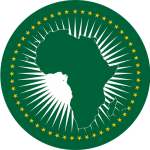Live Feed
The News Feed is curated by CGSP’s editors in Asia and Africa.
U.S. anxieties about China’s increasingly influential presence in Latin America and the Caribbean will be a popular topic of discussion on Capitol Hill this week. Conservative Texas Senator Ted Cruz will introduce a ...
Chinese Contractor Pledges to Complete Nigerian Capital’s Light Rail in Eight Months
The local head of Chinese construction major CCECC, Jason Zheng, pledged that it would only take eight months to build the once-abandoned light rail in the Nigerian capital Abuja. Zheng made the promise ...
U.S. Acknowledges It Can’t Cut China Out of the EV Battery Supply Chain
For much of the past year, since the passage of the Inflation Reduction Act (IRA) in 2022, U.S. officials have spoken at length about the urgent need to remove China from the critical ...
Vietnamese EV-Brand VinFast Hopes Possible EU Sanctions Against Chinese Electric Cars Will Give It an Opening
Vietnamese electric vehicle company Vinfast plans to ship its first batch of 3,000 VF8 crossovers to Europe later this year and the upstart EV brand may even get an assist from European Union ...
Blockbuster Movie Scares Chinese Tourists Away From Thailand
Chinese tourists landing in Bangkok on Monday were greeted with a heroes welcome, including Prime Minister Srettha Thavisin, who went to the airport to personally welcome the first batch of visa-free visitors.
WEEK IN REVIEW: ASEAN Kicked off First-Ever Joint Naval Drills in South China Sea on Tuesday
The Association of Southeast Asian Nations (ASEAN) kicked off its first-ever joint naval drills in the South China Sea on Tuesday near Indonesia’s Nantuna island. The five-day exercise comes at a sensitive time when ...
Nepal Walks a China-India-U.S. Tightrope as Prime Minister Heads to Beijing
Nepal’s Prime Minister Pushpa Kamal Dahal (nicknamed “Prachanda”) arrives in China on Friday for the second overseas visit since he took office. His first, in June, was to India, and the choice of destinations ...
Climate Chart of the Day: China and the U.S. Spend the Most on Fuel Subsidies
Fossil fuel subsidies in 2022 amounted to $7 trillion globally, about 7.1% of global gross domestic product. It shot up by 18.3% year on year, partly in response to the Ukraine war, according ...
Climate Change Dilemma: How Can the Global South Get Rich from Their Own Minerals?
This week, the Democratic Republic of Congo convened its inaugural DRC-Africa Battery Metals Forum in Kinshasa. Under the theme “Creating Wealth for the DRC and Africa’s Battery Metals Industry Value Chain,” the event tackles ...
Kuwait’s Crown Prince Heads to China
Kuwait’s Crown Prince Sheikh Mishal Al-Ahmad Al-Jaber Al-Sabah left for China on Wednesday for an official visit that will likely include a meeting with Chinese President Xi Jinping (the Foreign Ministry has to confirm ...
BRI Isn’t Intended to Undermine the West, Says China’s EU Ambassador
Fu Cong, the Chinese ambassador to the European Union in Brussels, challenged the widely-held perception in Brussels and other Western capitals that the Belt and Road Initiative aims to undermine U.S. and European ...
Republican Lawmakers in the U.S. Propose Yet Another Strategy to Challenge China’s Belt and Road Initiative
Three Republican legislators in the United States feel enough isn’t being done to counter China’s Belt and Road Initiative and want the State Department to come up with yet another plan to blunt ...
Prominent Chinese Professor Explains Why the U.S., Not China is Actually to Blame for Global South Debt Distress
One of China’s foremost scholars on international debt says accusations that Beijing engages in predatory lending, or “debt trap diplomacy” do not align with the facts — and that it’s actually the U.S., ...
China’s Two-Pronged Auto Export Strategy: EVs to the North, Gas-Powered to the South
Analysts are forecasting Chinese automakers will ship 5 million vehicles this year, solidifying the country’s position as the world’s largest auto exporter. But there’s a stark discrepancy in terms of what kind of ...
Chinese Flag Mysteriously Appears at Protest in Niger
Russian flags have become a regular sight among supporters of military juntas that have thrown governments across West Africa this year — but never a Chinese flag, until now. A bright red five-star ...
What Does Chinese Lending to Africa Look Like Now?
China has been one of the most important development lenders to Africa over the last quarter of a century. This has transformed the African development landscape in helpful and problematic ways. It is ...
Chinese Loans to Africa by Region, 2000-2022
From 2000-2022, countries in Southern Africa and East Africa historically borrowed the most from China primarily due to large-scale loans in Angola, Zambia, South Africa, Ethiopia and Kenya. In 2021 and 2022, the ...
The Emerging Talking Points Restructuring the Africa-China Relationship
The last few weeks have been punctuated by both an alphabet soup of big summits (BRICS, ASEAN, G20) and much discussion of the optics of Chinese President Xi Jinping’s presence or absence from ...
G77 Gathering Reinforces the Talking Points of China’s Global South Diplomacy
China sent its most senior official in recent years to the G77 gathering in Havana on Friday. The presence of Li Xi, the CPC’s seventh-ranking member and the head of the corruption watchdog, ...
South China Sea, Infrastructure Top Agenda in China-Malayasia PM Talks
Malaysian Prime Minister Anwar Ibrahim met with his Chinese counterpart Li Qiang on Sunday on the sides of the 20th China-ASEAN Expo in the southern Chinese city of Nanning. The two PMs addressed ...
Hun Manet Meets With Xi on First Overseas Trip as Cambodian PM
Cambodia’s new prime minister, Hun Manet, promised even closer ties with China during a meeting with President Xi Jinping in Beijing on Friday. The newly-named Cambodian leader thanked Xi for China’s economic ...
Zambian President Returns Home From Week-Long Visit to China, No Updates on Debt Restructuring Deal
Zambian President Haikinde Hichilema returned home this weekend from a week-long trip to China that appeared to be as much about sightseeing as it was about conducting substantive diplomacy. During the last stop of ...
Chinese Debt Servicing Costs Surge for Angola and Uganda
Debt servicing costs have been steadily rising across Africa, largely due to the falling value of local currencies that are used to repay dollar-denominated loans. But in Angola and Uganda, interest payments to ...
China’s Share of Nigeria’s Ballooning Debt Remains Steady at Around 4%
Chinese creditors account for just 4.1%, or $4.7 billion, of Nigeria’s $114 billion total public debt, according to the latest figures released by the Debt Management Office in Abuja. While China’s share is ...
Jaishankar: “India is the Only Country in the World Today Standing Eye-to-Eye Against China”
India’s top diplomat, S. Jaishankar, pushed back forcefully against accusations Prime Minister Narendra Modi “fears China” saying New Delhi is the only in the world today country that stands “eye-to-eye against China” with ...
Q&A: Financing a Renewables Shift in African Countries as China’s New “Small or Beautiful” Model Takes Root
If you look at the specific demands of many African countries, they are now more focused on production-related activities rather than fancy highways that lead to nowhere.
WEEK IN REVIEW: Chinese President Xi Jinping Will Not Attend This Week’s G77 Summit in Havana
Chinese President Xi Jinping will not attend this week’s G77 Summit in Havana, making this the third major international event in as many weeks that he’s avoided. Li Xi, head of the Chinese Communist Party’s powerful ...
43 Arrested in Protests Against Chinese Glass Factory in Indonesia
Indonesian police arrested 43 people during large-scale protests against a Chinese-led glass and solar panel factory. The factory that’s being planned for Rempang, a small island close to the border with Singapore, would displace ...
Philippines Pushing for Permanent Structure on Second Thomas Shoal
The Philippine parliament is reportedly calling for funding to construct a permanent structure on the Second Thomas Shoal (known as the Ayungin Shoal in the Philippines and Ren’ai Jiao in China.) The atoll is ...
China Calls for Africa-Focused Reform of the UN Security Council
On Wednesday, the Chinese Ministry of Foreign Affairs issued an expansive statement titled “Proposal of the People’s Republic of China on the Reform and Development of Global Governance.” According to FM spokesperson Mao ...
Introducing CGSP Intelligence
CGSP Intelligence gives you the information advantage on Chinese activities in the Global South. CGSP Intelligence is launching in Summer 2025, with analysis and a full set of data tools designed for corporate and enterprise leaders.




















































